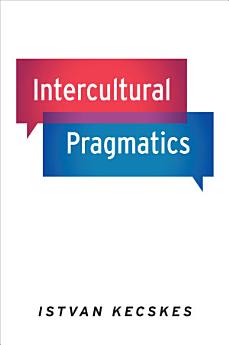Intercultural Pragmatics
ਨਵੰ 2013 · Oxford University Press
ਈ-ਕਿਤਾਬ
304
ਪੰਨੇ
family_home
ਯੋਗ
info
reportਰੇਟਿੰਗਾਂ ਅਤੇ ਸਮੀਖਿਆਵਾਂ ਦੀ ਪੁਸ਼ਟੀ ਨਹੀਂ ਕੀਤੀ ਗਈ ਹੈ ਹੋਰ ਜਾਣੋ
ਇਸ ਈ-ਕਿਤਾਬ ਬਾਰੇ
Intercultural Pragmatics studies how language systems are used in social encounters between speakers who have different first languages and cultures, yet communicate in a common language. The field first emerged in the early 21st century, joining two seemingly antagonistic approaches to pragmatics research: the cognitive-philosophical approach, which considers intention as an a priori mental state of the speaker, and the sociocultural-interactional approach, which considers it as a post factum construct created by both speaker and hearer though conversation. Istvan Kecskes, an early proponent of intercultural pragmatics, was among the first to propose merging the two to form the socio-cognitive approach now core to the field. In Intercultural Pragmatics, the first book on the subject, Kecskes establishes the foundations of the field, boldly combining the pragmatic view of cooperation with the cognitive view of egocentrism in order to incorporate emerging features of communication. He argues that people cooperate by generating and formulating intention that is relevant to the given actual situational context. At the same time, however, because of their egocentrism they activate the most salient information to their attention in the construction and comprehension of utterances. Within this approach, interlocutors are considered as social beings searching for meaning with individual minds embedded in a socio-cultural collectivity, and intention is a cooperation-directed practice that is governed by relevance which depends on actual situational experience. Intercultural pragmatics is a rapidly-growing field, and the only subfield of pragmatics to incorporate features of intercultural interaction into mainstream pragmatics. This volume offers both a valuable synthesis of current research and a new way to think about pragmatics.
ਲੇਖਕ ਬਾਰੇ
Istvan Kecskes is Professor of Linguistics and education at the State University of New York, Albany. He is the President of the American Pragmatics Association and Editor-in-Chief of the journals Intercultural Pragmatics (De Gruyter), Chinese as a Second Language Research (De Gruyter) and the Mouton Series in Pragmatics. He is the co-editor of the Journal of Language Aggression and Conflict (Benjamins).
ਇਸ ਈ-ਕਿਤਾਬ ਨੂੰ ਰੇਟ ਕਰੋ
ਆਪਣੇ ਵਿਚਾਰ ਦੱਸੋ
ਪੜ੍ਹਨ ਸੰਬੰਧੀ ਜਾਣਕਾਰੀ
ਸਮਾਰਟਫ਼ੋਨ ਅਤੇ ਟੈਬਲੈੱਟ
Google Play Books ਐਪ ਨੂੰ Android ਅਤੇ iPad/iPhone ਲਈ ਸਥਾਪਤ ਕਰੋ। ਇਹ ਤੁਹਾਡੇ ਖਾਤੇ ਨਾਲ ਸਵੈਚਲਿਤ ਤੌਰ 'ਤੇ ਸਿੰਕ ਕਰਦੀ ਹੈ ਅਤੇ ਤੁਹਾਨੂੰ ਕਿਤੋਂ ਵੀ ਆਨਲਾਈਨ ਜਾਂ ਆਫ਼ਲਾਈਨ ਪੜ੍ਹਨ ਦਿੰਦੀ ਹੈ।
ਲੈਪਟਾਪ ਅਤੇ ਕੰਪਿਊਟਰ
ਤੁਸੀਂ ਆਪਣੇ ਕੰਪਿਊਟਰ ਦਾ ਵੈੱਬ ਬ੍ਰਾਊਜ਼ਰ ਵਰਤਦੇ ਹੋਏ Google Play 'ਤੇ ਖਰੀਦੀਆਂ ਗਈਆਂ ਆਡੀਓ-ਕਿਤਾਬਾਂ ਸੁਣ ਸਕਦੇ ਹੋ।
eReaders ਅਤੇ ਹੋਰ ਡੀਵਾਈਸਾਂ
e-ink ਡੀਵਾਈਸਾਂ 'ਤੇ ਪੜ੍ਹਨ ਲਈ ਜਿਵੇਂ Kobo eReaders, ਤੁਹਾਨੂੰ ਫ਼ਾਈਲ ਡਾਊਨਲੋਡ ਕਰਨ ਅਤੇ ਇਸਨੂੰ ਆਪਣੇ ਡੀਵਾਈਸ 'ਤੇ ਟ੍ਰਾਂਸਫਰ ਕਰਨ ਦੀ ਲੋੜ ਹੋਵੇਗੀ। ਸਮਰਥਿਤ eReaders 'ਤੇ ਫ਼ਾਈਲਾਂ ਟ੍ਰਾਂਸਫਰ ਕਰਨ ਲਈ ਵੇਰਵੇ ਸਹਿਤ ਮਦਦ ਕੇਂਦਰ ਹਿਦਾਇਤਾਂ ਦੀ ਪਾਲਣਾ ਕਰੋ।






